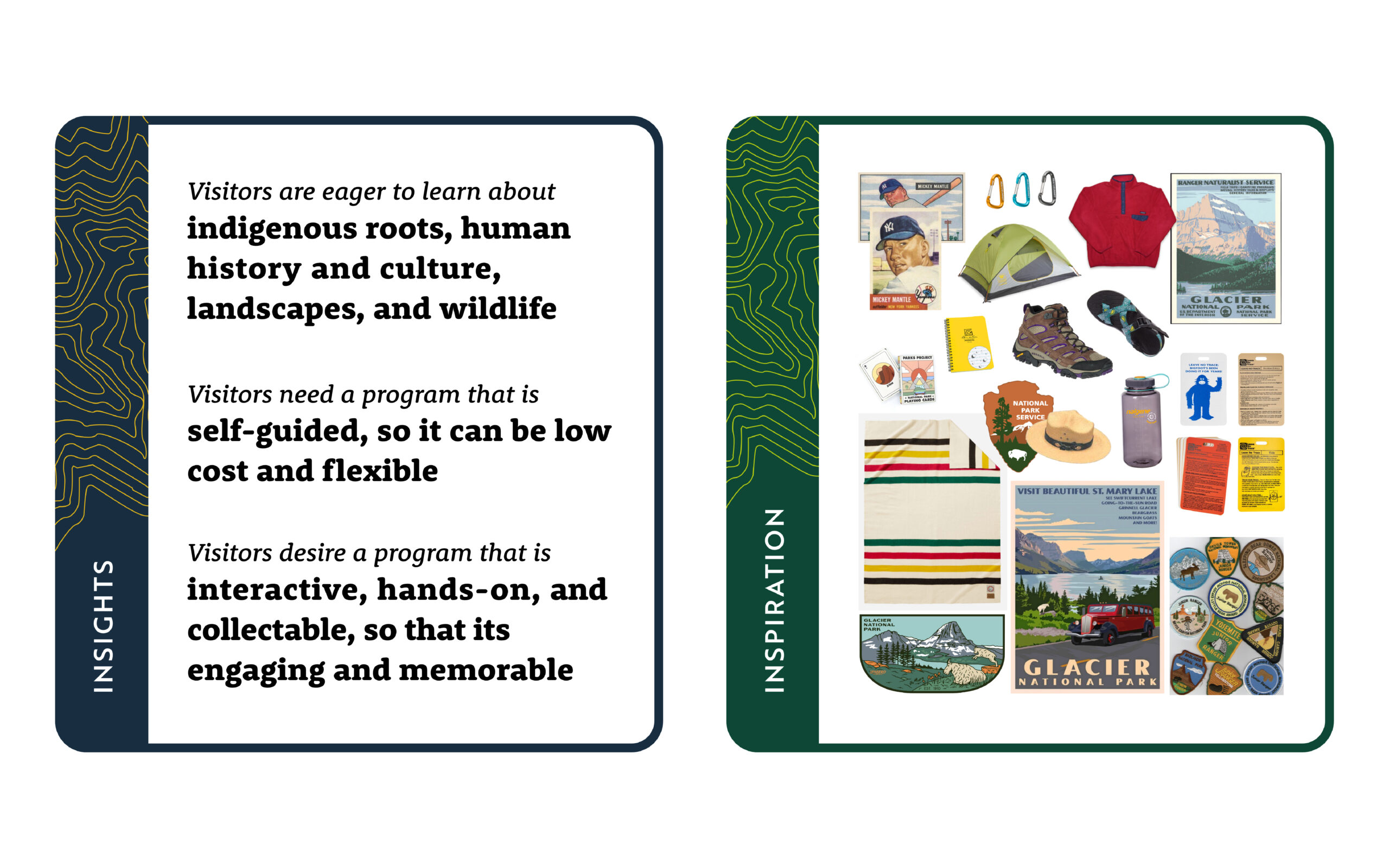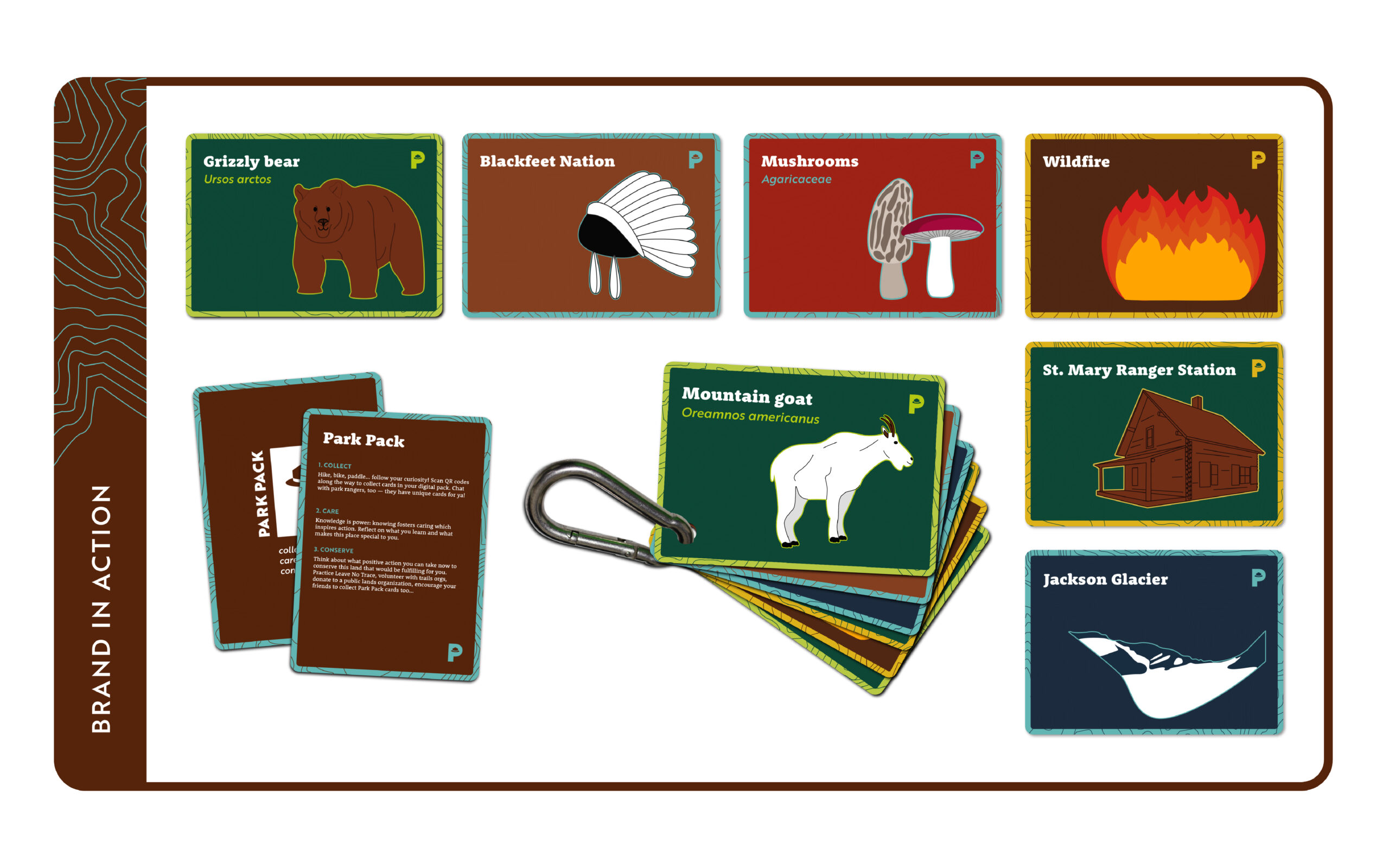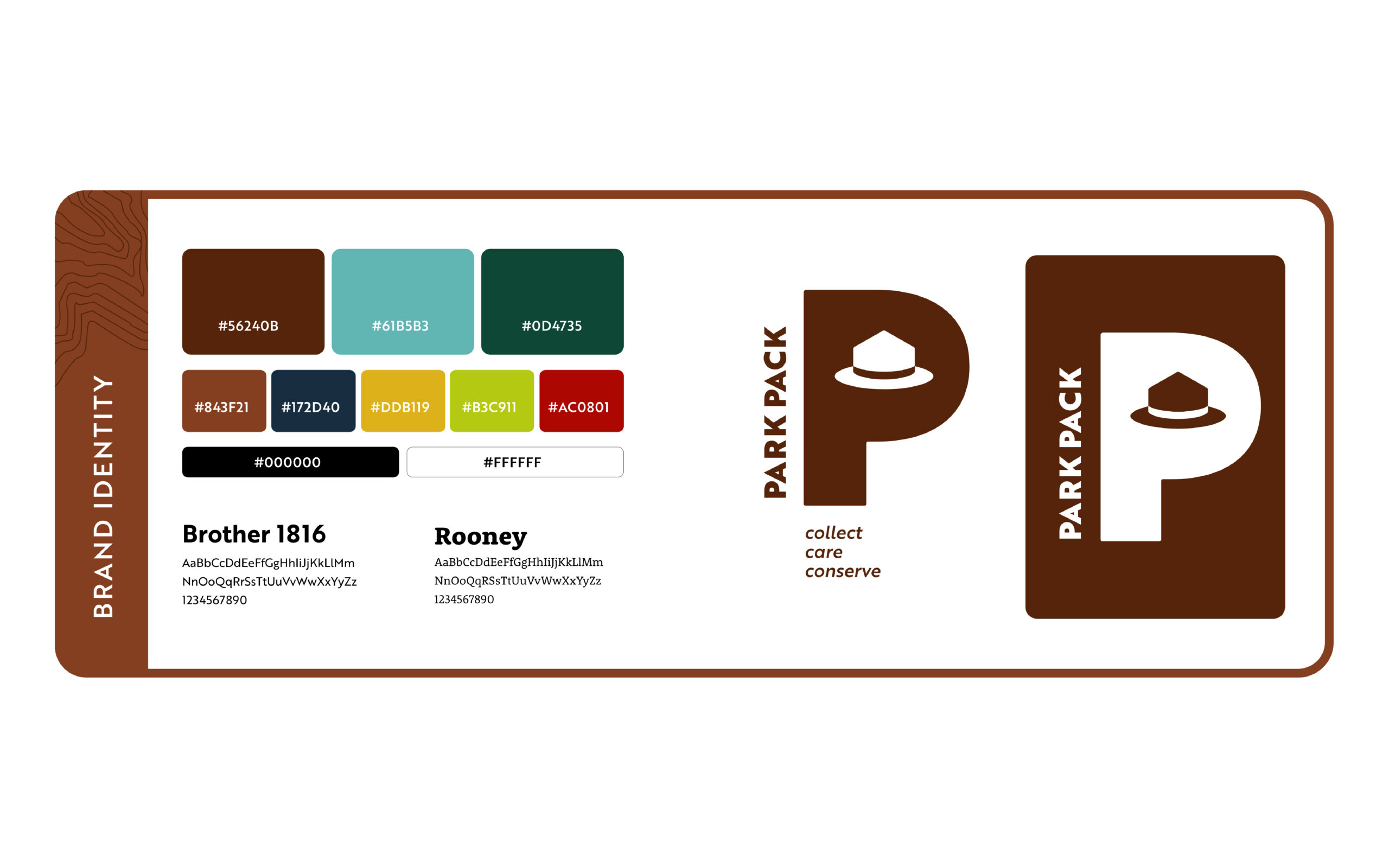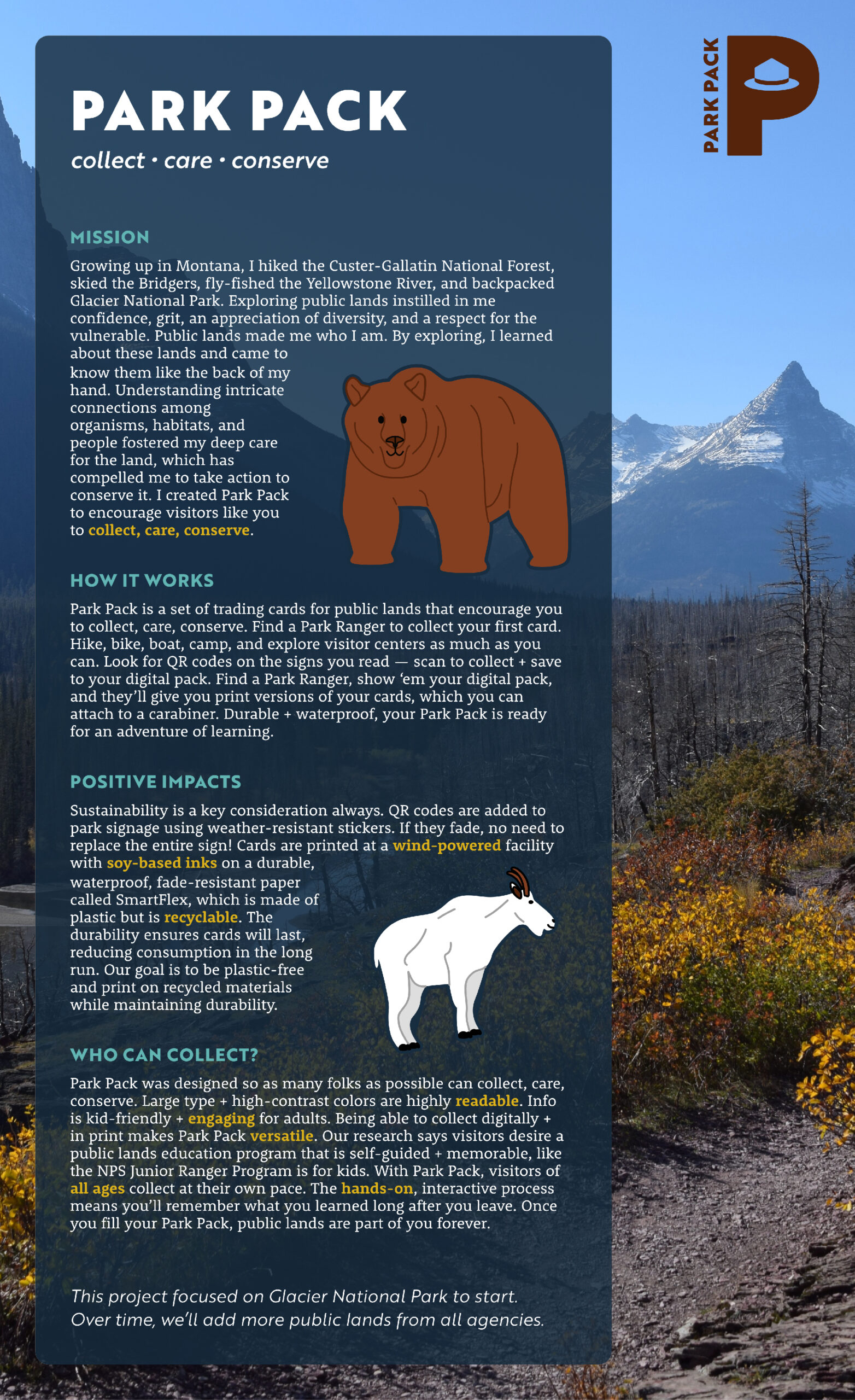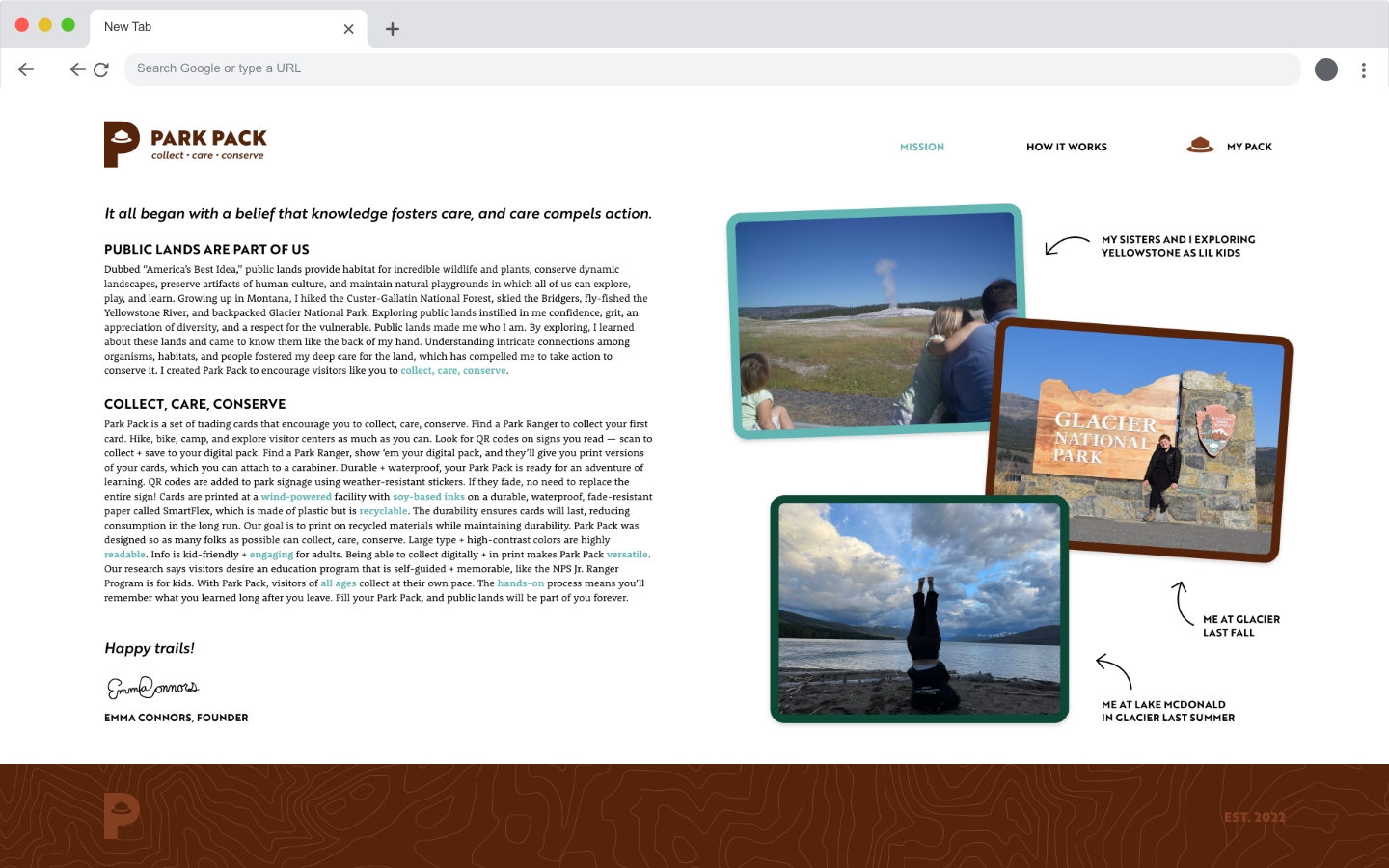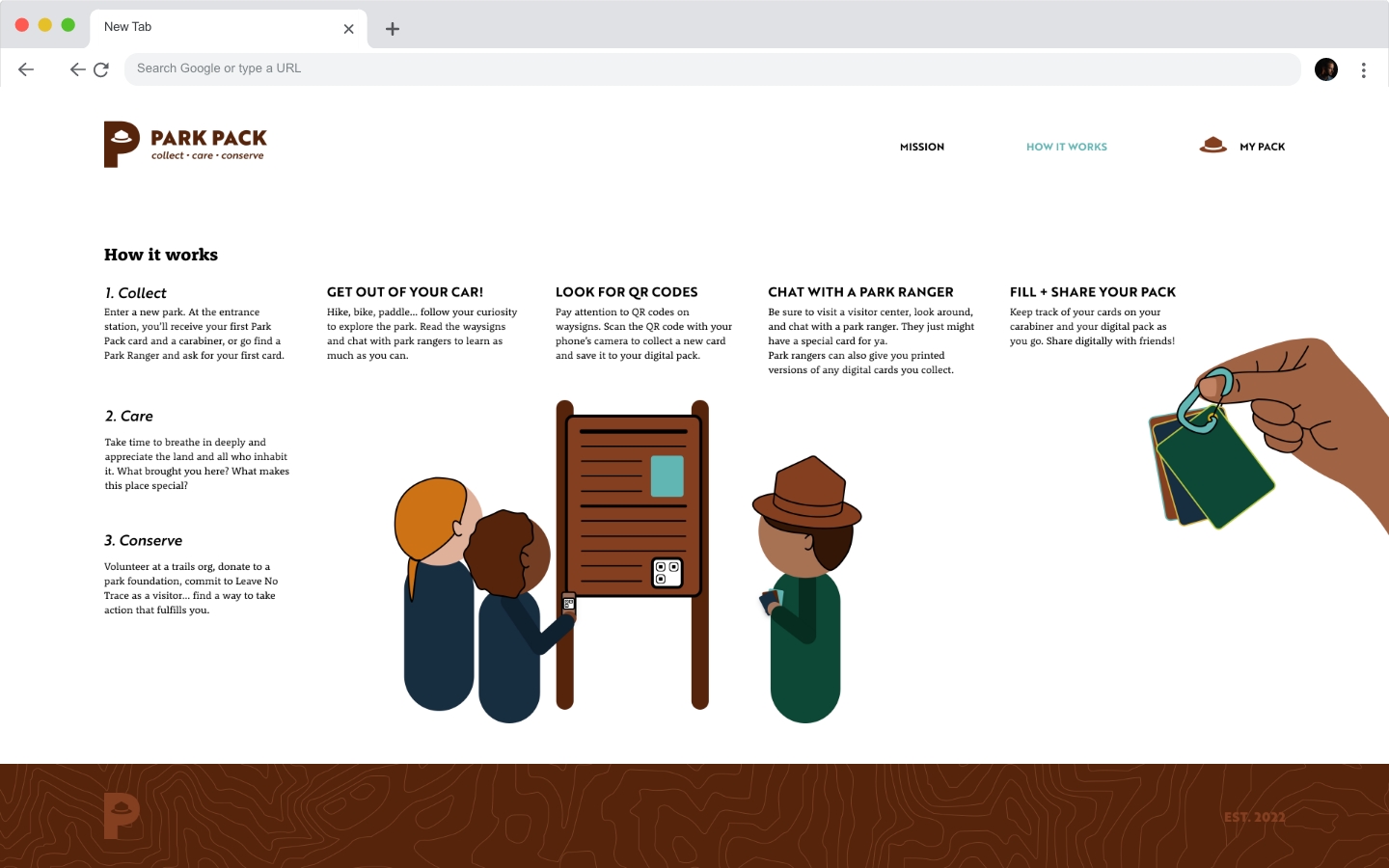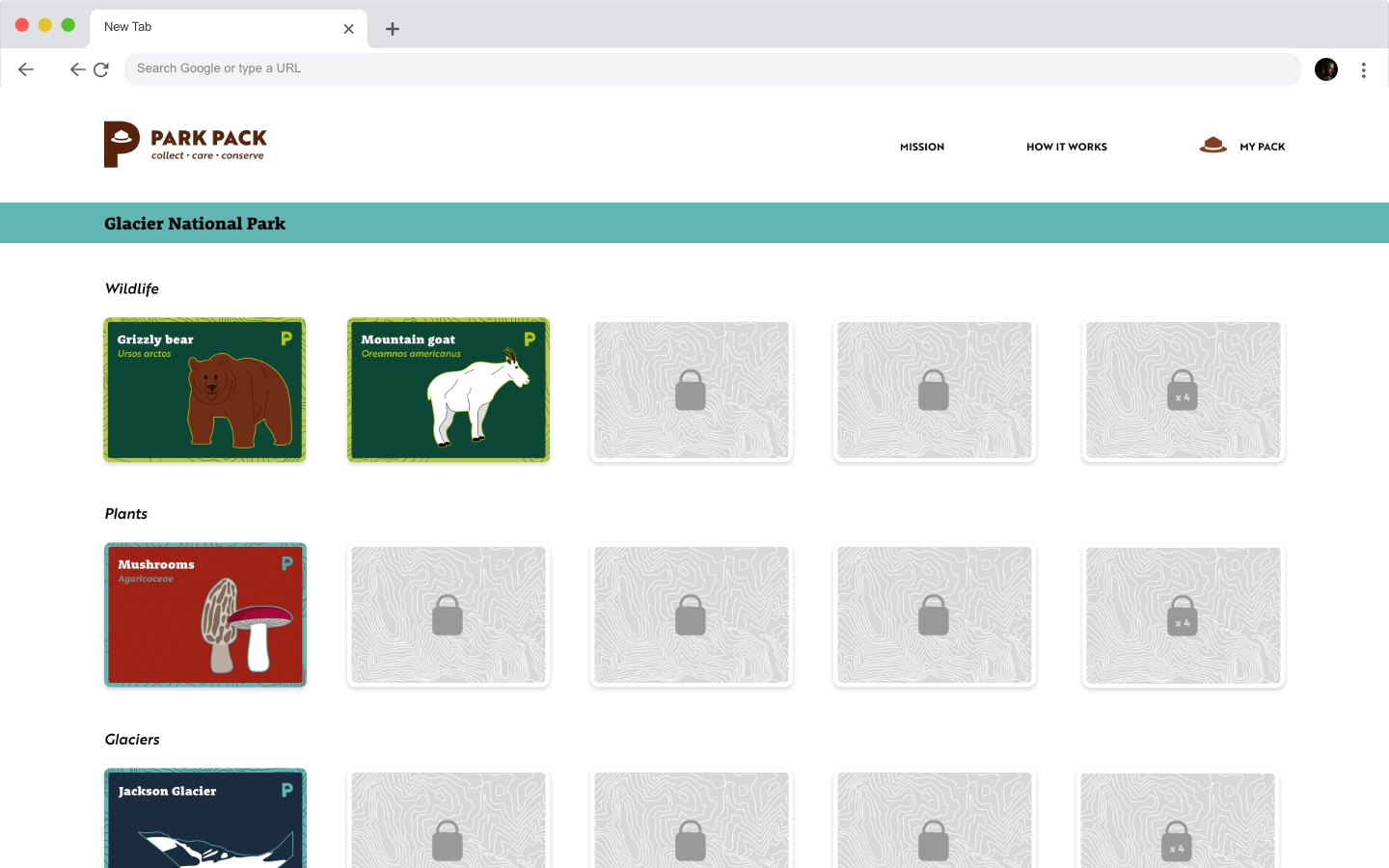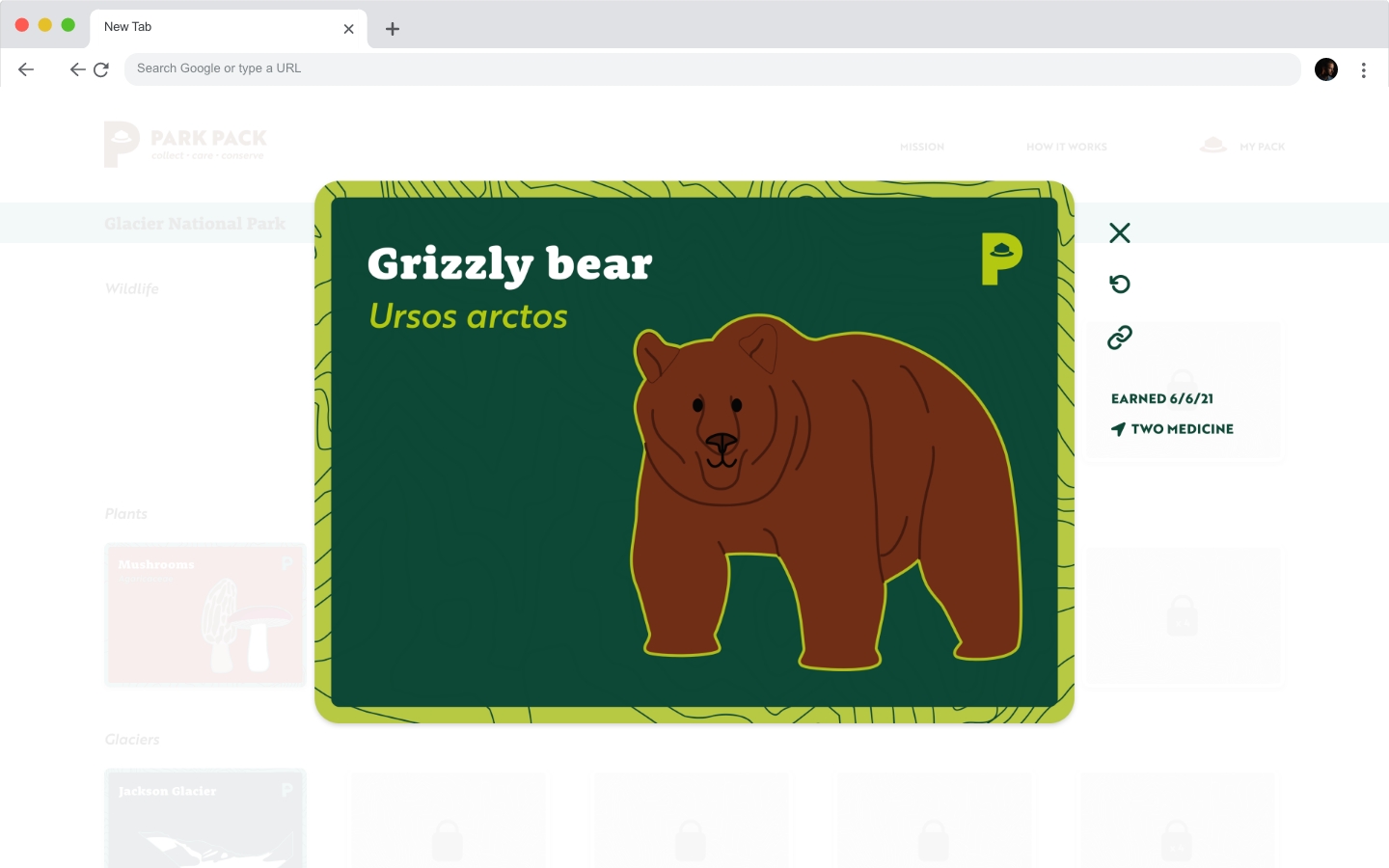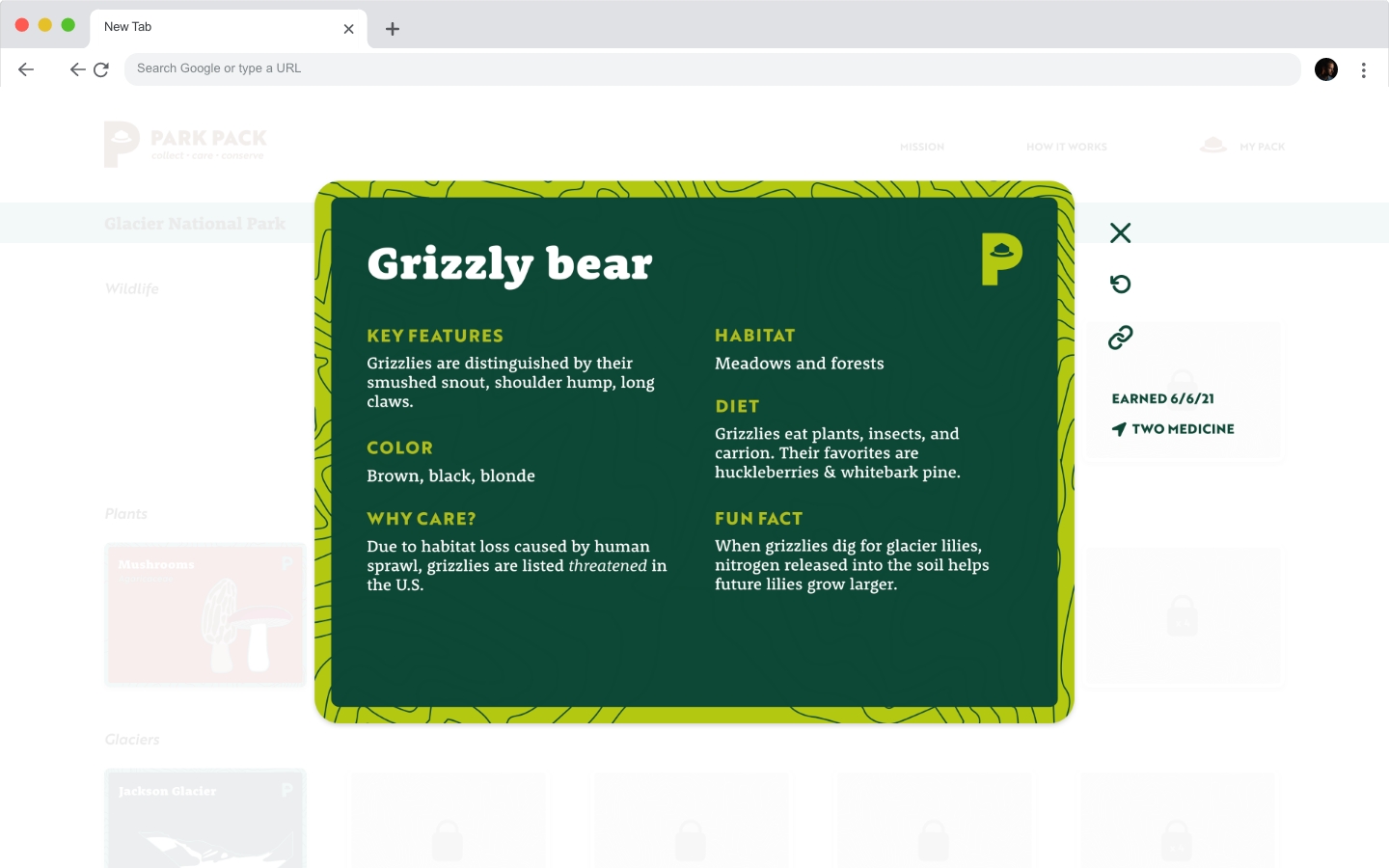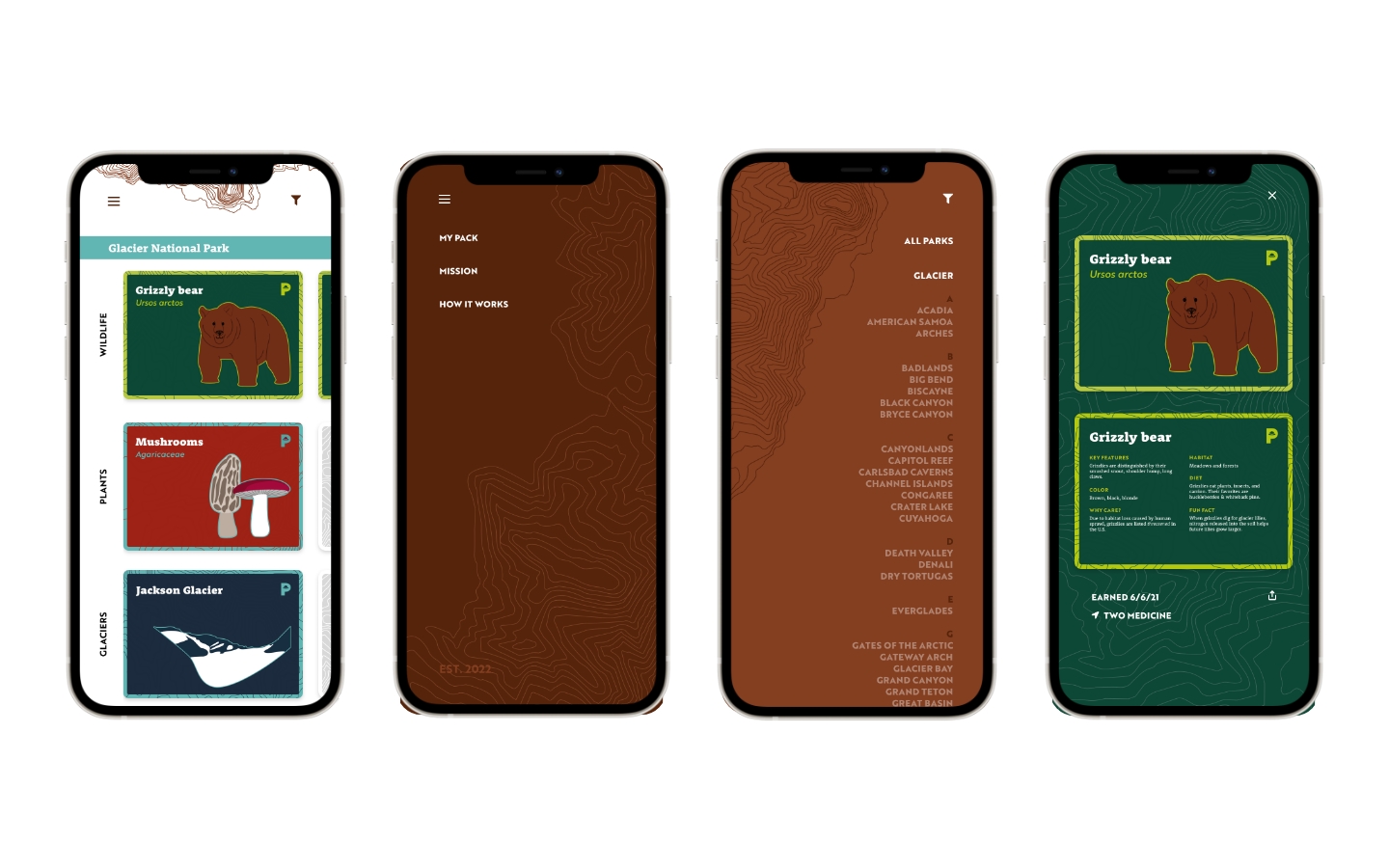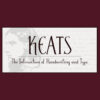Emma Connors
BA Honors | Visual Communication Design
DESIGNER BIO
I’m Emma Connors, an Anthropology minor and Visual Communication Design major with a passion for public lands. In Bozeman, Montana, I grew up outdoors: I hiked up and skied down mountains, fly-fished rivers, camped in Yellowstone, and backpacked through Glacier. All this time outside made me who I am. From examining intricate connections among ecosystems, I gained respect for diversity and care for the vulnerable. By hiking 15-mile days with a full pack, I gained confidence and grit. Following my curiosity, I learned about the places I explored, developing a love for public lands that has manifested in positive action. Beside Leaving No Trace, volunteering my design skills for environmental orgs, and leading a Montana Conservation Corps youth crew, I pursued a senior thesis. My goal is to enhance the educational experience of visitors to public lands, guided by a belief that knowledge fosters care, and care fosters positive action.
PROJECT STATEMENT
Knowledge is power. Now more than ever, our world needs us to use our power positively. Public lands are vital to the American identity. Dubbed “America’s Best Idea,” National Parks and other public lands provide habitat for incredible wildlife and plants, conserve dynamic landscapes, preserve artifacts of human culture, and maintain natural playgrounds in which all of us can explore, play, and learn. But public lands are in danger. We’ve exploited resources, dumped waste, sucked up all the water and oil we can find, confined wildlands to ever smaller plots, and released much more CO2 into the atmosphere than it can handle. Hotter temperatures, rising seas, and unusual weather patterns threaten ecosystems. In Glacier National Park, the effects are right before our eyes: the namesake glaciers are melting. Since 1850, scientists have documented a reduction in area, thickness, and mass of every named glacier in the park. Most visitors admire the glaciers, not knowing their unfortunate history, sad future, and what they can do about it.
Knowledge is power. Knowing something – why it exists, how it came to be, what it depends on, and who depends on it – leads us to care about it, and care compels positive action. Enter Park Pack, the public lands trading cards. Visitors are encouraged to hike around, read waysigns, explore visitor centers, and ask Park Rangers questions to earn cards with facts about wildlife, indigenous history, natural phenomena, and more. Cards can be collected physically – printed on recyclable waterproof paper – and digitally – on a mobile-friendly website. They’re easy to share and encourage more folks to collect, care, and conserve.
Enhancing educational experiences of visitors to public lands to encourage conservation
